Late Junction - The quiet genius of Basil Kirchin (original) (raw)
The quiet genius of Basil Kirchin
Dubbed a "founding father of ambient music" by Brian Eno, Basil Kirchin’s influence on 20th-century music is huge. Yet, for much of his life, he worked in almost total anonymity. Late Junction unearths some little-known facts about the composer’s remarkable life…
Basil became a professional musician during the Blitz…
Kirchin started his drumming career at 13 years old in the 1940s. He’d play for eight hours a day and then sleep in Warren Street Underground station as the Blitz roared above him. Playing with Ted Heath (the bandleader, not the former prime minister) and his own father Ivor, he had several hits and was produced by a young George Martin, who went on to produce The Beatles. He was twice voted jazz drummer of the year by the NME and famous fans included Sean Connery and ElizabethTaylor.
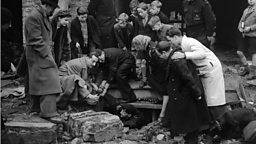
He went to India long before the Fab Four…
In the late fifties, nearly a decade before the Beatles made their famous trip to India, Basil spent five months in the Ramakrishna Temple at Dakshineswa on the River Ganges, exploring music and mysticism. Realising he felt like a “prisoner of rhythm… fed up of playing other people’s music”, the trip marked his departure from the world of Big Band music and drumming.
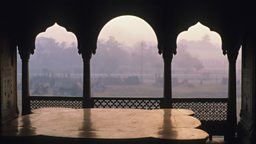
He decided to write music for the movies…
Back in Blighty, Basil started composing soundtracks for imaginary films, “writing blind” and experimenting with unusual time signatures and tape techniques. These compositions developed into a series of classic library music albums: music made to be used in film, TV and other media. Working for the De Wolfe Music Library, he employed the talents of session musicians such as Jimmy Page (yes that one) and Mick Ronson, a fellow Hullensian who would later work with the likes of David Bowie and Bob Dylan.
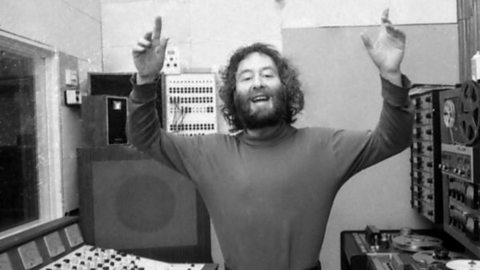
Basil’s imaginary films became real…
By the mid-sixties Kirchin was being commissioned to create original soundtracks for real movies, including Catch Us If You Can, Primitive London, The Freelance, and classic horror The Abominable Dr. Phibes starring Vincent Price.
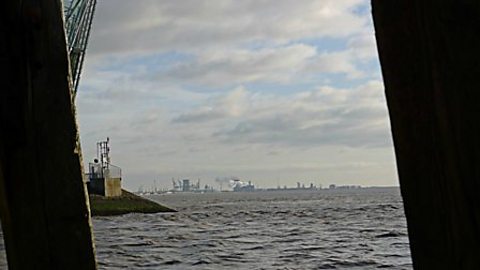
Basil was a pioneer of "Musique Organique"...
With an Arts Council grant and a new NAGRA audio recorder, Kirchin began using the sound manipulation skills of the Musique Concrète composers. However, he was keen to emphasise that while their sound sources were mostly "non-organic" (i.e. machines and electronic instruments) he made use of the natural environment. For his Worlds Within Worlds album in 1971 Basil began recording, splicing, and slowing down various sounds including animals and the autistic children taught by his wife Esther. The uncanny effects he created were then merged with or turned into jazz music.
Basil became an enigma...
Annoyed at his record company and disappointed with sales of his 1974 edition of Worlds Within Worlds, Kirchin released very, very little music for 30 years. He lived, in his words, in “isolation agony”, moving to Switzerland with his wife before settling in Hull. While the techniques that he developed became commonplace, critics and artists rarely traced musical developments back to his influence. Indeed, during this period, Kirchin was amazed when he discovered that anyone had been listening to and enjoying his music.
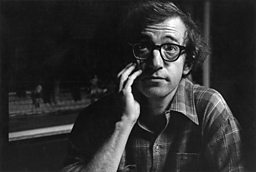
Basil heard music in Winston Churchill and Woody Allen...
Kirchin's work had a late-life renaissance. As global attention on his music increased, and technology caught up with his musical vision, he experienced a burst of creativity and became determined to release an ambitious final album and “irk people with humour”. One of the tracks, Concept Suite, uses as source material the musical phrasing inherent in everyday talking, inspired by famous speeches from Adolf Hitler, Winston Churchill, Woody Allen, and Samuel L Jackson. Kirchin died in 2005. The LP, Particles, was posthumously released by Trunk Records in 2007.
Long-lasting but little-known influence...
As well as inspiring Bernard Herrmann, Basil has been held up as an influence by big musical names such as Broadcast, Bob Stanley and Brian Eno, who calls him “the founding father of ambient music”.
With his pioneering film work in the sixties you could argue he paved the way for celebrated modern film composers.
His legacy is so subtle as to almost not be noticed and his secluded later life added to a lack of wider appreciation for his work.
But with Hull City of Culture 2017 having a series of events at Hull City Hall from the 17th February to the 19th February and Late Junction giving its own tribute to him, Basil Kirchin and the imprint he left on British music is finally being given its moment in the sun.
- Britain's first robot, recreated with the help of Giles Walker
Meet Eric